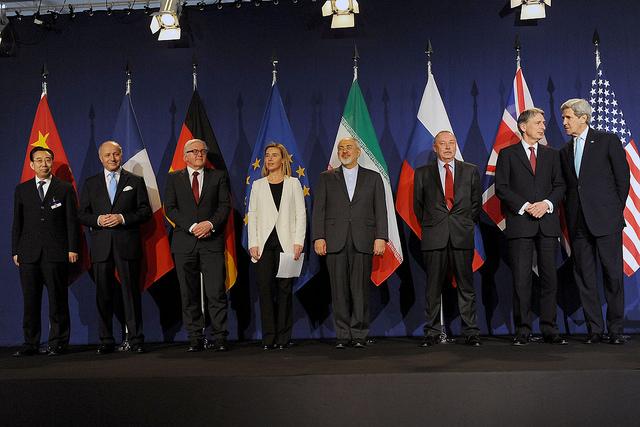Since the early April release of the Parameters for a Joint Comprehensive Plan of Action Regarding the Islamic Republic of Iran’s Nuclear Program, commentators have been vocal and divided about its merits and demerits. I’m reluctant to rush to judgment about the deal. The negotiations remain a work in progress, and clarification of the key parameters before final signature at the end of June will have an important role in any assessment of its final value. Moreover, both the US and Iran have presented their own versions of the current level of agreement, which suggests the existing contest in public diplomacy is merely one more round where each is trying to cement the other’s feet in place on contentious points.
But I’d like to offer a few comments about the framework of the framework, as it were. First of all, it’s important to see the deal as an arms control measure, not as a disarmament measure. That’s an important distinction, since half the criticism levelled at the agreement is that it doesn’t lock Iran away from nuclear weapons forever. Arms control agreements codify and stabilise. They create durable expectations. They’re meant to manage a problem, rather than to solve it. That’s what we have here—which also explains why the agreement’s attracted its fair share of critics. Those deeply opposed to the possibility that Iran might ever have nuclear weapons don’t want the problem managed for a decade or so; they want it solved, even if they don’t have a perfect picture of how a solution might be achieved.
Second, if this is an arms control agreement, then the final agreement itself will bear a close reading. In arms control accords, every word matters. In the New START agreement, for example, one of the principal constraints falls on nuclear warheads deployed on strategic nuclear delivery vehicles. The agreement says nothing about non-deployed strategic nuclear warheads, nothing about non-strategic warheads—whether deployed or not. The same rule about close reading applies to the Iranian agreement. The interim agreement shows an attempt to constrain Iran’s pathways to the development of fissile materials—whether by uranium enrichment or by plutonium production. So far, the broad parameters are promising, but the devil will be in the details still to be agreed. As the interim agreement itself notes, nothing is agreed until all is agreed.
Third, the agreement enshrines a new metric for arms control: a proliferation breakout timeline. That timeline—the time it would take Iran to acquire the fissile material for one nuclear weapon—is meant to be kept at one year for the next ten years. The metric’s essentially a by-product of the other technical constraints, but it does set a precedent that other future proliferators might be content to see applied to their own cases. The one-year timeline suggests that any breakout can be addressed by the international community, or at least its principal players, over that timeframe. The ten-year timeframe is not an exemption from Iran’s obligations under the NPT, but some worry that it implies an absorptive capacity within the international community in relation to a future nuclear-armed Iran.
Fourth, if this is an arms control measure and not a disarmament one, we should expect a degree of controversy about the agreement and its contents. One rule of arms control is that it’s most available when least needed. Since some constraints on the Iranian nuclear program are sorely needed, that in itself suggests concluding a final agreement won’t be simple. Arms control makes a virtue of half a loaf when the full loaf isn’t available. In the context of negotiations between two heavily nuclear-armed superpowers, half a loaf’s a good outcome. The virtue of half a loaf is going to be harder to sell in the context of proliferating powers. Treating nuclear proliferation as a management issue is more contentious.
Finally, US policy has long tended to treat each specific proliferation problem as unique. After all, nuclear proliferation comes along infrequently enough that there’s good reason to shape a response that addresses individual motivations. But that approach turns upon a broad acceptance across the US mainstream about the nature of the potential proliferator. I think we’re about to see, over coming months, whether such a level of agreement exists in relation to Iran.
